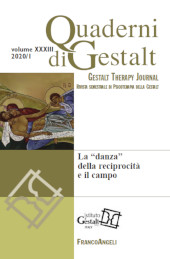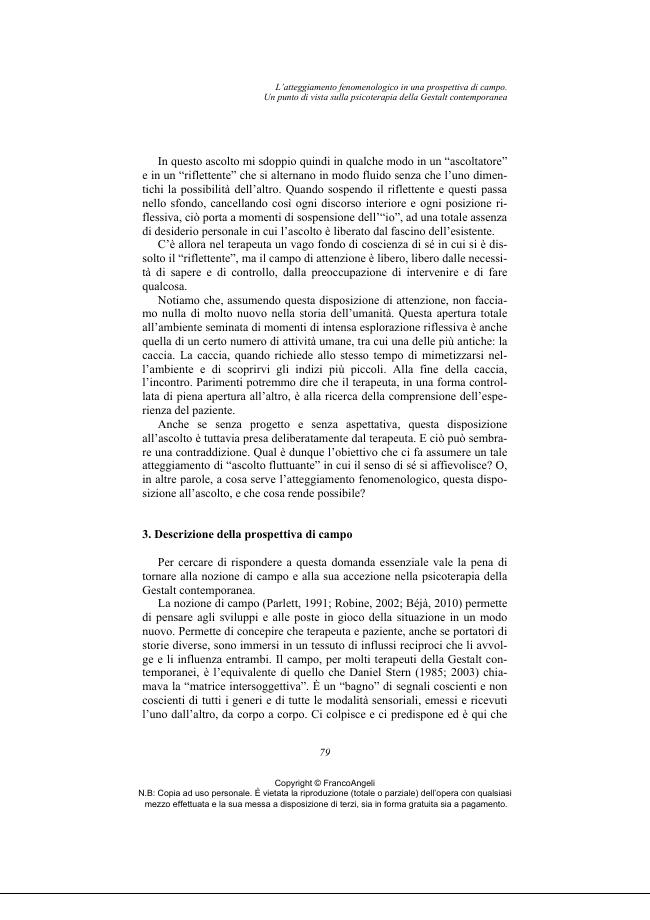L'atteggiamento fenomenologico in una prospettiva di campo : un punto di vista sulla psicoterapia della Gestalt contemporanea
75-83 p.
In questo articolo l'autore, partendo dai contributi forniti dai più importanti fenomenologi, cerca di spiegare come l'atteggiamento fenomenologico, inscritto in una prospettiva di campo, permetta alla diade terapeutica di evolversi, trasformando il mondo vissuto del paziente. Riassumendo l'atteggiamento fenomenologico essenzialmente come una disposizione ad ascoltare in funzione della situazione, descrive come l'esperienza del terapeuta viene di conseguenza modificata. Quando il terapeuta è impegnato in un atteggiamento fenomenologico, vive una polarizzazione tra ascolto e riflessione, in cui si alternano la funzione es e le funzioni io e personalità. Ciò modifica la matrice intersoggettiva e quindi l'esperienza del paziente, che si apre a nuove possibilità di azione, rendendo il cambiamento profondo e duraturo. [Testo dell'editore].
In this paper the author tries to give a sense of how and why the phenomenological atti-tude, when applied in a field perspective, is useful and operates in and on the therapeutic dyad, thus having an impact on the client's lived world. In the thoughts of Husserl and Merleau-Ponty the phenomenological attitude consists mainly in a disposition to listen. This thought, applied to the field of psychotherapy, is summed up in opening oneself to the experience of the other, to feed a disposition to amazement and listening. In their theory, Perls and Goodman described the self as having at least three modes of functioning, ego-function, id-function and personality-function. In the phenomenological attitude of the therapist, the id-function is more activated, while the others have less space, but have not disappeared; it remains in the therapist's consciousness, in a sort of trace of the ego-function, an ability to "realize that something is being observed".
In the listening, the therapist somehow splits into a "listener" and a "reflective person", alternating in a fluid way without forgetting the possibility of the other. In the field - in which therapist and patient are no longer two distinct individuals who communicate with each other, but exist in front of each other on the basis of a background that can be defined common by the fact of being in the presence of each other - the therapist, adopting an attitude of openness, empathy and curiosity facing the patient's experience, helps to modify the "intersubjective matrix", the fabric of mutual influence from which the two experiences constantly emerge. With all the senses open, from this disposition to listening to bodily resonances, the poignancy of the therapist's "ego" dissolves, lightens its imprint on the patient's imme-diate experience and thus implicitly encourages the patient to unfold, creating a profound and lasting change, as research has shown. [Publisher's text].
-
Artikel aus derselben Ausgabe (einzeln erhältlich)
-
Informationen
ISSN: 2035-6994
THEMENBEREICHE
KEYWORDS
- Fenomenologia, campo, ascolto, responsività, relazione
- Phenomenology, field, listening, responsiveness, relationship



